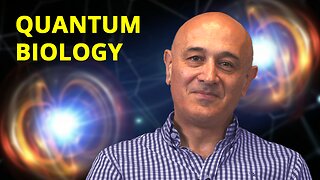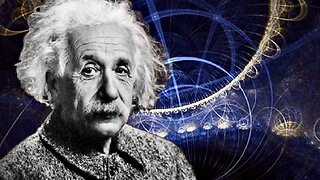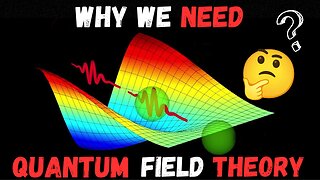Quantum Mechanics - Science Tuesday - Special Guest Brian S!
Quantum mechanics is a fundamental theory in physics that describes the behavior of matter and energy at extremely small scales, such as atoms and subatomic particles. It provides a framework for understanding the nature of particles, their interactions, and the properties of physical systems.
Here are some key concepts and principles in quantum mechanics:
Wave-particle duality: According to quantum mechanics, particles such as electrons and photons can exhibit both wave-like and particle-like properties. This means that they can behave as both discrete particles and as waves of probability.
Superposition: Quantum systems can exist in multiple states simultaneously. This principle is known as superposition. For example, an electron can exist in a superposition of being in multiple locations or having multiple energy levels simultaneously.
Uncertainty principle: The uncertainty principle, formulated by Werner Heisenberg, states that there is a fundamental limit to the precision with which certain pairs of physical properties, such as position and momentum, can be known simultaneously. This implies that there is inherent uncertainty in the measurement of certain quantities in quantum mechanics.
Quantum entanglement: Entanglement is a phenomenon where two or more particles become correlated in such a way that the state of one particle cannot be described independently of the others. This means that measuring the state of one entangled particle can instantaneously affect the state of the other, regardless of the distance between them.
Quantum superposition and measurement: When a quantum system is observed or measured, its superposition collapses into a definite state. This is often referred to as the measurement problem in quantum mechanics, as it raises questions about the nature of observation and the role of consciousness in the collapse of the wave function.
Quantum tunneling: Quantum tunneling is a phenomenon where particles can pass through potential barriers that would be classically impassable. It is a consequence of the wave-like nature of particles and has important applications in various fields, such as scanning tunneling microscopy and nuclear fusion.
Quantum mechanics has found wide-ranging applications in areas such as solid-state physics, atomic physics, quantum chemistry, and quantum computing. It provides a deep understanding of the microscopic world and has led to groundbreaking technological advancements in fields like computing, cryptography, and communication.
-
 12:26
12:26
dayaker61
1 year agoSecrets of Quantum Physics: What You Need to Know.
210 -
 3:05
3:05
NadeemJaved737
11 months agoTop 10 Mind-Boggling Quantum Physics Facts you must see
5 -
 21:12
21:12
Scientific Video Protocols
11 months agoQuantum Biology | Explained by Jim Al-Khalili
306 -
 6:52
6:52
Age of Discovery
3 years ago $0.16 earnedWhat is a Quantum Pilot
2663 -
 52:52
52:52
Seeker Land
1 year agoEinstein and the Mystery of Quantum Entanglement - Full Documentary
5361 -
 2:58
2:58
Atomic Analyzer
11 months agoQuantum Field Theory Explained
19 -
 5:02
5:02
Truth Wins Now
5 months agoQuantum Physics - How It Works
526 -
 5:40
5:40
Joel Lagace
7 months ago $0.02 earnedThe Hidden Variables in Quantum Physics
128 -
 30:18
30:18
Tranquilmomentsforyou
5 months agoWhat Is Reality? Get ready to get your mind blown! Quantum Mechanics and Consciousness Documentary.
14 -
 35:17
35:17
9DHarmonics
10 months agoQuantum Practice Workshop - Quantum Entanglements (July 30, 2023)
3661